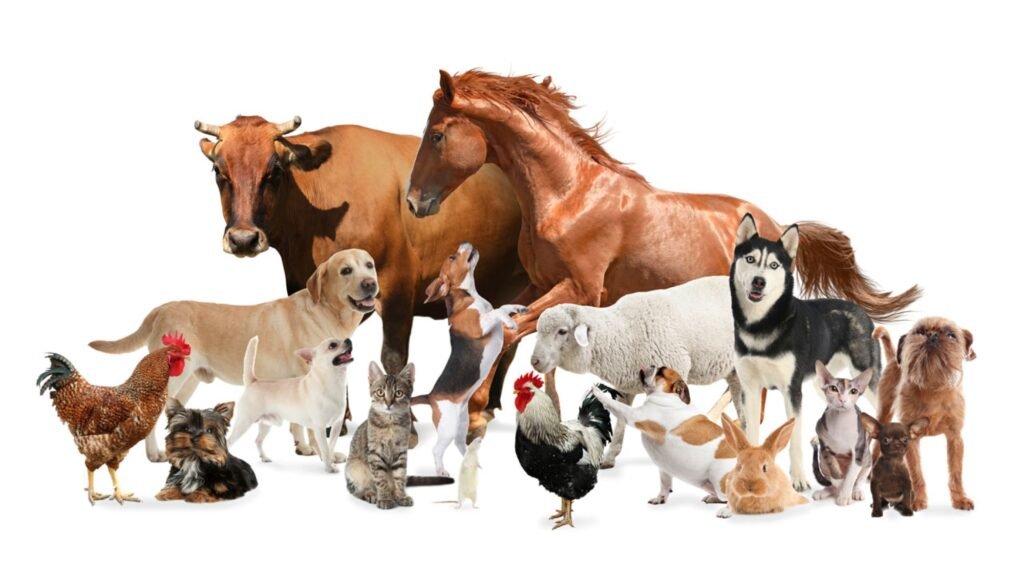Pet farming, or commercial breeding, involves breeding animals on a large scale, mostly for sale to pet stores or directly to people. This practice is controversial, with strong opinions on both sides. Some believe pet farming is necessary and beneficial, while others are concerned about animal welfare and ethics. This article will explore both the positive and negative aspects of pet farming to help you understand the issue better.
The Pros of Pet Farming
-
Meeting High Demand for Pets
Pet farming helps meet the high demand for pets. Many people want to bring a new animal into their lives, and pet farms provide a steady supply of pets, including many different breeds and types. For example, suppose someone is looking for a specific breed like a Golden Retriever or an exotic pet like a Bengal cat. In that case, pet farms can provide these animals where they might not otherwise be readily available.
“Pet farming ensures that there are always animals available for those who are ready to welcome a new pet into their homes.” – Industry Expert
Important Note: Pet farms make it easier for people to find the right pet quickly, which can be a lengthy and uncertain process.
-
Controlled Breeding Practices
Controlled breeding can be good for maintaining the health and quality of specific breeds. For example, a reputable breeder of French Bulldogs may use careful practices to monitor the genetic backgrounds and health of their breeding pairs to reduce common issues like breathing problems. This approach helps reduce the risk of hereditary diseases and ensures that pets meet specific breed standards, which can lead to healthier animals.
By choosing breeding pairs carefully, breeders aim to reduce genetic disorders and improve pets’ overall health.
-
Economic Benefits
Pet farming supports the economy by creating jobs and supporting various industries. The pet industry includes breeders, veterinarians, pet supply companies, and retailers. For instance, large-scale breeders may employ workers to care for the animals, transport them, and manage sales, all contributing to the local economy.
“The pet industry is a multi-billion-dollar sector, and pet farming is a key component of its economic engine.” – Economic Analyst.
Important Note: The benefits of pet farming extend beyond just breeders, impacting many sectors related to pet care and management.
-
Preservation of Rare Breeds
Pet farming can help preserve rare or endangered breeds. For example, some breeders focus on keeping breeds like the Norwegian Lundehund, a rare dog breed with unique traits, from becoming extinct. By breeding these rare animals, pet farms help ensure that unique breeds continue to exist for future generations.
Preserving rare breeds through responsible pet farming is important for maintaining animal diversity and keeping unique traits alive.
-
Educational Value
Pet farming can offer valuable information to prospective pet owners. Reputable breeders often provide details about the needs, care, and characteristics of the animals they sell. For instance, a breeder of Siamese cats may educate buyers about the breed’s social nature and need for attention, helping new pet owners make informed choices and understand what it takes to care for their pets properly.
“An informed pet owner is a responsible pet owner. Breeders who educate their clients contribute to better pet care.” – Pet Care Expert
Important Note: Educating people about pets can lead to better care and more responsible pet ownership.
The Cons of Pet Farming
-
Animal Welfare Concerns
One major issue with pet farming is the potential for poor animal welfare. For example, some puppy mills—large-scale commercial dog breeding operations—have been reported to keep animals in cramped, unsanitary conditions, leading to health problems and suffering. When profit becomes the main focus, the animals’ needs might be neglected, raising serious ethical concerns.
“Not all pet farms prioritize animal welfare, and this can lead to severe health issues and suffering for the animals.” – Animal Welfare Advocate
Important Note: It’s important to research breeders thoroughly to ensure they prioritize animal welfare and maintain high care standards.
-
Overpopulation and Euthanasia
Pet farming can contribute to pet overpopulation, which strains animal shelters. For example, when more animals are bred than there are homes for them, many pets end up in shelters. In some cities, this overpopulation problem leads to high euthanasia rates, where animals are put down due to a lack of available homes.
“The overpopulation caused by pet farming often leads to unnecessary euthanasia of animals in shelters.” – Shelter Manager
Important Note: Pet overpopulation highlights the need for shelter adoption and support for spay/neuter programs to manage the number of pets and reduce the burden on shelters.
-
Genetic Health Issues
Even with controlled breeding, genetic health issues can still occur. For example, inbreeding practices among certain breeds, like Pugs, can lead to hereditary health problems, such as hip dysplasia or respiratory issues. These issues can affect the animals’ well-being and lead to higher veterinary costs for their owners.
“Genetic health problems can persist if breeding practices are not carefully managed to avoid inbreeding.” – Veterinary Specialist
Important Note: Responsible breeders work hard to minimize these risks, but genetic health problems can still be a concern with certain breeding practices.
-
Ethical Concerns About Commodification
Pet farming raises ethical questions about treating animals as commodities. For instance, when animals are viewed solely as products to be bought and sold, like merchandise in a store, it can lead to a lack of respect for their value as living beings. This focus on profit over welfare can create ethical dilemmas.
“Viewing animals as commodities rather than sentient beings can lead to ethical dilemmas and compromised animal welfare.” – Animal Rights Activist
Important Note: The issue of commodification highlights the need for a more compassionate approach to animal breeding and care.
-
Potential for Irresponsible Breeding
Not all breeders follow ethical standards, leading to irresponsible breeding practices. For example, some breeders may overbreed their animals, keep them in poor conditions, or prioritize profit over the animals’ well-being. These practices can result in health and behavioral problems for pets, such as aggressive behavior in dogs that have not been properly socialized.
“Irresponsible breeding practices can lead to significant health and behavioral issues for pets.” – Animal Welfare Specialist
Important Note: Choosing a breeder who adheres to ethical practices is essential to ensure that animals are treated with care and respect.
Conclusion
The ethics of pet farming involve a complex mix of benefits and drawbacks. On one side, pet farming helps meet the demand for pets, supports the economy, and can preserve rare breeds. On the other side, it raises concerns about animal welfare, overpopulation, and the ethical treatment of animals.
If you support pet farming, choose breeders who follow high ethical standards and focus on animal welfare. Alternatively, consider adopting shelters or rescue organizations to help manage overpopulation and give a homeless animal a second chance.
By making informed and thoughtful decisions, you can contribute to a more ethical approach to pet ownership and breeding. Whether you adopt or purchase a pet, your choices can influence the future of animal welfare and ensure that pets are treated with the respect and care they deserve.



